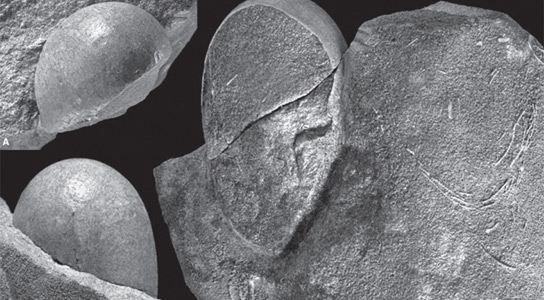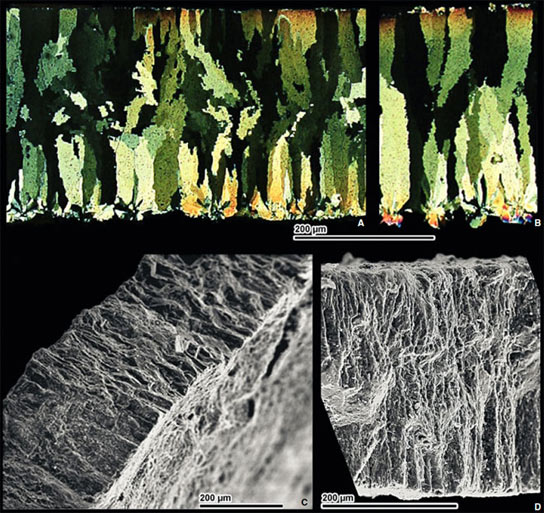
High in the Pyrenean mountains of Spain, paleontologists found hen-shaped dinosaur eggs sticking out of ancient sandstone. The eggs, that date back to 70 million years, were laid by a yet unknown dinosaur, which paleontologists speculate was a small meat-eater. They think that it stood on the blurry divide between birds and dinosaurs.
The scientists published their findings in the journal Paleontology. Initially, it was hard to tell that these eggs were fossilized. The oldest known dinosaur eggs are from the Jurassic period (200 million years to 145 million years ago), about 190 million years ago. Most fossilized shells come from the Cretaceous period, that lasted from 145 million years ago to 65 million years ago.

S. pyrenaica fossilized eggshells under an optical microscope (top) and scanning electron microscope (bottom).
Nieves Lopez-Martinez, a now deceased paleontologist of the Universidad Complutense de Madrid, an Enric Vicens, of the Universitat Autònoma de Barcelona, discovered two new egg nests in the Pyrenees, a mountain range that borders France and Spain. The eggshell fragments stood almost complete and included a 2.75-inch-long egg, about the size of a large chicken egg. The dinosaur was named Sankofa pyrenaica, which means “learning from the past” in Ashanti, a West African language.
The paleontologists suspect that the eggs were located in nests on the beach barrier of an island lagoon, until some cataclysmic event buried them. The fine preservation of these eggs allowed scientists to see the differences from modern bird eggs. The eggs are missing a third external layer, with is common to almost all modern bird eggshells
The analysis of the eggs indicates that the dinosaur parent was a transitional animal between modern birds and small, meat-eating dinosaurs.
[via Wired]








 User Center
User Center My Training Class
My Training Class Feedback
Feedback












Comments
Something to say?
Log in or Sign up for free